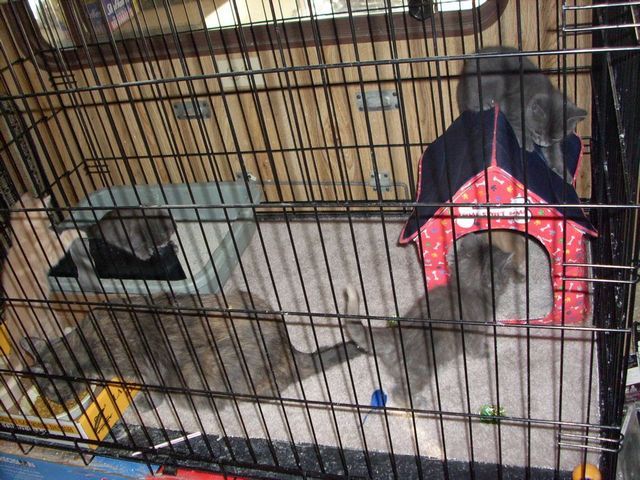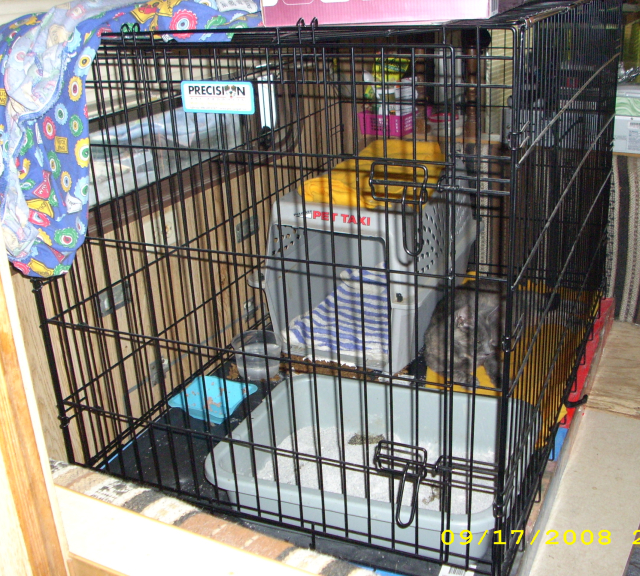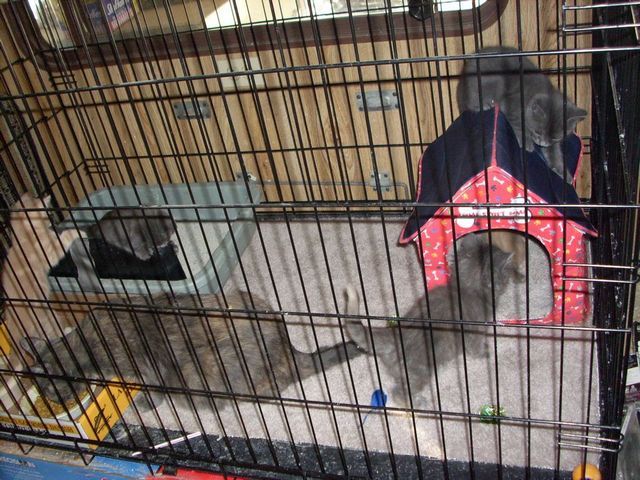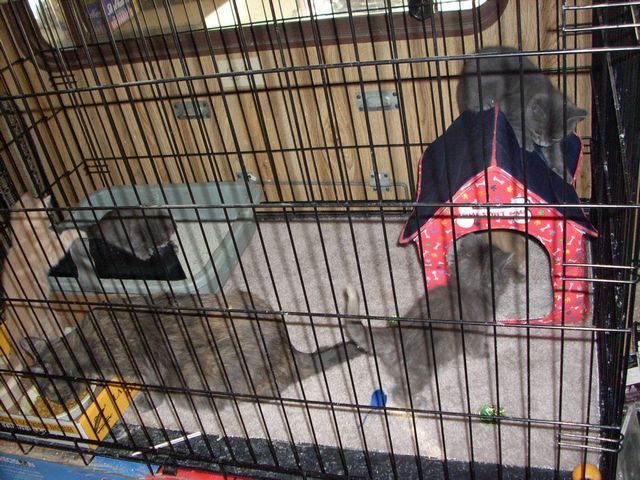QuestionI have 2 female cats, the younger one, which we got as a kitten, does not like visiting people and hisses and can get aggressive to both them if they go near and us (whom she is not normally aggressive to). She is spayed. we got the other female as an adult and this happened with my younger cat even before getting this one. As a kitten, she was rejected from her mom by siblings and teased by kids. What is the reason for this behaviour and is there any way to calm her around company..she seems very agitated. thanks for your help
AnswerTammy,
The reason for that type of behavior is that she was a feral kitten or had one, or both parents, that were feral. That is typical behavior for them and though can modify their behavior, they basically won't change.
And it takes a lot of patience and special handling with them. I have found that they prefer a neck 'massage' (massage just in front/above the shoulder blades) to being actually petted. I have 2 feral cats that will be 2 years old that I have had since birth. They are still skittish. One, if she sees a strange person or hears a strange noise, she runs under the bed and hides for HOURS! One will me pet her ONLY when she has a cat toy in her mouth! Neither likes to be held, carried, or petted for very long, but both sleep with me and are loving.
Ferals CAN become affectionate and loving, but it takes a LONG time for them to reach that point. And it takes a lot of time, patience, and love. And when they do reach that point when they are affectionate and loving, they normally still do not like to be held, restrained, and barely even petted. There is a human distrust that is inherited and inbred into them. They will never be like a typical domesticated housecat, but they can follow you around, rub against your legs, and lay next to you happily. Getting ferals as newborns or young kittens you have a better chance for a friendly kitty, but even then they still carry the feral behavior with them. Of course there are exceptions, but that is the standard behavior for ferals. They also usually only bond with one person. And will always remain skittish and frightened of strangers. You just need to understand that and do not try to force them to be sociable. If she wants to go hide, let her. She is only going where she feels safe. You will stress her and scare her more if you try to make her stay around people she doesn't trust or know. If she gets agitated and upset, she WILL strike out at anyone near, including you, because self-protection is in their basic inherited nature and they react without reasoning.
To protect yourself from bites or scratches you need to watch the feral closely. They will give you warnings when they have had enough petting or touching. Ears will pin back, and they may growl, but the main sign is their tail. If it starts twitching or swishing back and forth, the time to stop petting them is NOW! When you have a feral that doesn't like to be touched....don't. Respect how the cat is and accept it. It will make for a happier living situation. Biting is a reflex action for protection. Pet from behind the head. Coming from the front is a recipe for claws coming out or being bit.
They are very sensitive, so do not yell at them and never hit them! You can undo any trust you have built up. They react to the tone of your voice.
They are natural hunters and enjoy being able to do it. They are happiest being able to be indoor/outdoor cats. They like to be outside to hunt, but they also like to be inside where it is safe and not scary. You also will run across the ones that never want to go outside again.
If you keep them inside all the time then you need to satisfy that hunting urge to keep them mentally well-balanced and happy. Giving them a raw beef rib bone (I have the butcher cut them in half) satisfies the "fresh kill' instinct, plus the fibers help clean their teeth. They should have stuffed toy mice you can throw so they can chase it and "catch" it. A pet laser light is great for letting them try to catch the "little red bug" on the walls, floors, and ceilings.
I hope this helps you understand your cat a little better.
Tabbi

 New Kitten
QuestionCat litter in kitchen
QUESTION: I adopte
New Kitten
QuestionCat litter in kitchen
QUESTION: I adopte
 tabby aggressive
QuestionHi,my male cat jasper is 7 years of age and has
tabby aggressive
QuestionHi,my male cat jasper is 7 years of age and has
 Wonderful, Frustating Cat
QuestionI have a cat that adopted me, my dogs and my ot
Wonderful, Frustating Cat
QuestionI have a cat that adopted me, my dogs and my ot
 hissing
QuestionWe just adopted a female cat. Our resident cat
hissing
QuestionWe just adopted a female cat. Our resident cat
 Blending adult kitties
QuestionWe had 5 cats. 2 females, and 2 long haired mal
Blending adult kitties
QuestionWe had 5 cats. 2 females, and 2 long haired mal